
The COVID-19 pandemic has become a global public health crisis and poses unprecedented challenges to the national health and lives of our residents. The Department of Epidemiology and Biostatistics held a seminar series on the epidemiology of the COVID-19 pandemic in the US, the state of Maryland and the world. The seminar series featured presentations delivered by frontline public health experts, community members and epidemiologists.
Numerous reports have discussed how longstanding inequalities, stigmatization and discrimination, and inadequate access to health care have resulted in substantial inequities under the ongoing COVID pandemic. Poorer communities, including the more than 476 million indigenous people living in 90 countries, have higher morbidity and mortality due to COVID, and less access to COVID vaccines. During this webinar, indigenous leaders and health care providers from the United States, Australia and Latin America discuss the current status of COVID and access to COVID vaccines.
Questions addressed in this webinar:
- Now that vaccines are out, what are the plans for the distribution of vaccines to indigenous communities in remote areas?
- Are there concerns about the quality and/or safety of the vaccines amongst indigenous communities?
- How far behind are kids in indigenous communities from getting their regular childhood vaccinations?
- What is the path forward for indigenous communities in remote areas? Will vaccines be sufficient or is more needed to bring back income streams to indigenous communities such as ecotourism etc.?
- Are indigenous communities tapping into other types of medicine, traditions and healing to combat Covid in conjunction with the vaccine?
- How are rural communities faring as compared to urban communities (both in terms of illness and vaccine access)?
Agenda
- Welcome and Introduction – Olivia Carter-Pokras
- Miguel Flores – United States
- Ruth Alipaz Cuqui (speaker)/Hayley Stuart (interviewer) – Bolivia
Watch the interview with Ruth Alipaz Cuqui (Bolivia). - Joselo Balderrama Hurtado (speaker) /Melissa Garcia (interviewer)- Bolivia
Watch the interview with Joselo Balderrama Hurtado (Bolivia). - Jesem Orellana /Daniel Tregidgo & Anne Toomey (interviewers) – Brazil
Watch the interview with Jesem Orellana (Brazil). - Kalinda Griffiths – Australia
- Questions and Answers – Hayley Stuart
- Summary and Wrap-up – Anne Toomey, Melissa Garcia, Delight Satter
Watch a recording of this webinar:
Public health agencies depend on well-trained, ethical professionals to carry out the complex and varied work of public health and to protect the public's health. The coronavirus has put public health practitioners in a spotlight and made the work more difficult and even dangerous, given some types of public reactions. Drs. Boris Lushniak (SPH Dean and Professor), Dushanka Kleinman (SPH Associate Dean for Rresearch and Professor), Olivia Carter-Pokras (SPH Professor of Epidemiology) and Cynthia Baur (SPH Director of the Horowitz Center for Health Literacy) worked in several agencies of the federal US Department of Health and Human Services over several decades and now teach and research public health. In this webinar, they share their perspectives and suggestions of how future public health leaders can learn from the coronavirus outbreak and prepare themselves to be ethical public health leaders when the next outbreaks and disasters come.
Watch a recording of the webinar:
Recommended resources:
- NPR: Former CDC Director on How to Restore Faith in Agency (5 minute podcast)
- Washington Post article on former CDC Director William Foege's letter to current CDC Director Robert Redfield
- AAAS Science magazine, "The Inside Story of How Trump's COVID-19 Coordinator Undermined the World's Top Health Agency"
- ProPublica, "Inside the Fall of the CDC"
- Washington Post editorial from former FDA administrators, "7 former FDA commissioners: The Trump administration is undermining the credibility of the FDA"
Webinar speakers:
- Rear-Admiral Retired (RADM Ret) Boris Lushniak, MD, MPH, has been the dean and a professor at the University of Maryland School of Public Health since January 2017. Before joining the University of Maryland, he served as Professor and Chair of the Department of Preventive Medicine and Biostatistics and Professor of Dermatology, F. Edward Hébert School of Medicine at the Uniformed Services University of the Health Sciences (USUHS) in Bethesda, Maryland. Dr. Lushniak was the U.S. Deputy Surgeon General from November 2010 to September 2015, assisting the Surgeon General in articulating the best available scientific information to the public to improve personal health and the health of the nation. He also oversaw the operations of the US Public Health Service (USPHS) Commissioned Corps, comprised of approximately 6,700 uniformed health officers who serve in locations around the world to promote, protect, and advance the health and safety of our nation. From January to March 2015, he served as Commander of the USPHS Monrovia Medical Unit in Liberia, the only US government hospital providing care to Ebola patients. His 27 years of service include experiences on Ground Zero, the 2004 Anthrax outbreak, Hurrican Katrina, H1N1 and other assignments.
-
Dushanka V. Kleinman, D.D.S., MScD, is the associate dean for research and professor within the Department of Epidemiology and Biostatistics at the University of Maryland School of Public Health. Prior to joining the University of Maryland, Dr. Kleinman, a Board Certified specialist in Dental Public Health, completed 28 years of government service where she served as Deputy Director, National Institute of Dental and Craniofacial Research, NIH and Assistant Surgeon General (Rear Admiral), U.S. Public Health Service (USPHS) Commissioned Corps. In 2006 she completed a five-year term as the 15th Chief Dental Officer, USPHS. She was the co-editor and coordinated the federal involvement in the development, of the first-ever Surgeon General's report on oral health (2000). At NIH she assumed the role of NIDCR Acting Director twice during transitions between directors and also served as the first assistant director of the NIH Roadmap for Medical Research.
-
Olivia Carter-Pokras, PhD is a professor of epidemiology at the University of Maryland School of Public Health. Prior to joining the University of Maryland, Dr. Carter-Pokras served as the Director of the Division of Policy and Data at the HHS Office of Minority Health, and also worked in CDC's National Center for Health Statistics. A health disparities researcher for four decades, Dr. Olivia Carter-Pokras has been recognized by the Governor of Maryland, Surgeon General, Assistant Secretary for Health and Latino Caucus of the American Public Health Association for her career achievements to improve racial/ethnic data, develop health policy to address health disparities and improve health care quality for Latinos. Dr. Carter-Pokras has led NIH funded research projects to develop cultural competency and health literacy curricula and served as Co-Investigator for a European Commission-funded project to develop cultural diversity training for health professional educators. An elected fellow of the American College of Epidemiology, Dr. Carter-Pokras teaches infectious disease and chronic disease epidemiology to public health students and leads a short term study abroad course to the Bolivian Amazon (Global Health Lessons in Ecotourism and Community Health).
-
Cynthia Baur, PhD, became the director of the Horowitz Center for Health Literacy in January 2017. Prior to coming to UMD, Dr. Baur worked for 17 years in communication leadership roles with the Centers for Disease Control and Prevention (CDC) in Atlanta, Georgia, and the U.S. Department of Health and Human Services (HHS) in Washington, D.C. Most recently, she served as the Senior Advisor for Health Literacy in the CDC Office of the Associate Director for Communication and CDC's Senior Official for the Plain Writing Act implementation. During her federal tenure, she led multiple initiatives to define best practices and guidelines in health communication and health literacy. She was the first manager of the Healthy People health communication objectives and the editor of the U.S. National Action Plan to Improve Health Literacy. At CDC, she created CDC’s health literacy website, which provides tools and online training to improve health literacy and public health, and she is the co-creator of the CDC Clear Communication Index, a set of scientific criteria for creating clear public communication materials. Her approach is based in communication science and focuses on providing diverse audiences with information in ways they can understand and use.
The COVID-19 pandemic is disproportionately impacting the health, wellbeing, and livelihoods of over 476 million indigenous people in 90 countries. As the UN Secretary noted in early August: “Prior to the current pandemic, indigenous peoples already faced entrenched inequalities, stigmatization and discrimination. Inadequate access to health care, clean water and sanitation increases their vulnerability…. Lapsed enforcement of environmental protection during the crisis has brought increasing encroachment on indigenous peoples’ territories by illegal miners and loggers… Realizing the rights of indigenous peoples means ensuring their inclusion and participation in COVID-19 response and recovery strategies.” However, the lack of governmental support and the collapse of ecotourism and other income streams has placed additional pressures on indigenous communities in remote areas.
On October 12, indigenous community members, a white water kayaker and film-maker, and epidemiology, One Health/Ecohealth, global health, and anthropology experts gathered virtually for a conversation about how indigenous peoples in the Bolivian and Peruvian Amazon are responding to the COVID Pandemic and other threats to their communities. They discussed the region and its people, how COVID has changed the way that people are currently living, key challenges going forward and strategies to assist.
This webinar is of interest to students interested in global health, One Health/Ecohealth, environmental justice, and health disparities.
Watch a recording of the webinar:
Webinar slides:
- See the webinar slides for "The Pandemic and Other Threats to Indigenous Peoples in the Amazonian Rainforest" from Dr. Carlos Castillo-Salgado
- See the webinar slides for "The Pandemic and Other Threats to Indigenous Peoples in the Amazonian Rainforest" from Dr. Olivia Carter-Pokras
Speakers:
Ruth Alipaz Cuqui was born in the indigenous river community of San José de Uchupiamonas in the Bolivian Amazon. At 12 years of age, she traveled by herself to La Paz to work as a nanny for a year. She returned to her community and then left to be the first woman in her community to attend and graduate high school. She then became the first person from her community to attend and graduate university while juggling life as a single mother and working to support her extended family, her young child, and herself. She is the founder and owner of the ecotourism business Bird Bolivia and Sadiri Lodge (http://sadirilodge.com/ ), a founding leader of women’s training at the world-famous indigenous community-owned Chalalan Ecolodge (https://chalalan.com/en/ ), and an unwavering advocate for free-flowing rivers and their integral role in the health of local communities throughout the Amazon and the world. Invited to speak multiple times at the UN, most recently Ruth participated in the United Nations Inclusive Social Development Division for Indigenous Peoples. She serves as the Coordinadora general de la Coordinadora Nacional en Defensa de Territorios Indígenas Originarios Campesinos y Áreas Protegidas de Bolivia (Contiocap) [Coordinator for the Defense of Indigenous, Native, Peasant Territories and Protected Areas].
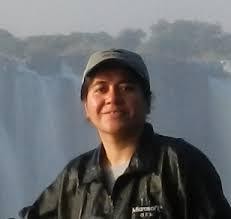 Erika Alandia, DVM, MSc is a Bolivian veterinarian with a master's degree in Agricultural Science, Food Security, and Natural Resources Management in the Tropics and Subtropics from the University of Hohenheim in Germany (2003). She is the coordinator for One Health projects at Fundacion Teko Kavi and works for 15 years now in the Bolivian Amazon region. Previously, she served as a field veterinarian (2005-2008) for the Wildlife Conservation Society, WCS - Bolivia, before assuming the coordination of the WCS’s Global Health Program (2008-2013) and the coordination of the Emerging Pandemic Threat Program - PREDICT project in Bolivia (2010-2014). She supported research projects on wildlife diseases run by the University of California-Davis’ Wildlife Health Center (2016-2017) and worked for FAO in Bolivia from 2014 to 2016. Dr. Alandia is the vice-president of the Bolivian Network of Primatology - RedBolPrim, and promotes the use of natural integrative therapies for domestic animals and wildlife.
Erika Alandia, DVM, MSc is a Bolivian veterinarian with a master's degree in Agricultural Science, Food Security, and Natural Resources Management in the Tropics and Subtropics from the University of Hohenheim in Germany (2003). She is the coordinator for One Health projects at Fundacion Teko Kavi and works for 15 years now in the Bolivian Amazon region. Previously, she served as a field veterinarian (2005-2008) for the Wildlife Conservation Society, WCS - Bolivia, before assuming the coordination of the WCS’s Global Health Program (2008-2013) and the coordination of the Emerging Pandemic Threat Program - PREDICT project in Bolivia (2010-2014). She supported research projects on wildlife diseases run by the University of California-Davis’ Wildlife Health Center (2016-2017) and worked for FAO in Bolivia from 2014 to 2016. Dr. Alandia is the vice-president of the Bolivian Network of Primatology - RedBolPrim, and promotes the use of natural integrative therapies for domestic animals and wildlife.
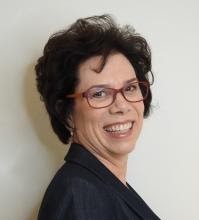 Olivia Carter-Pokras, PhD is a Professor of Epidemiology at the University of Maryland School of Public Health. A health disparities researcher for four decades, Dr. Olivia Carter-Pokras has been recognized by the Governor of Maryland, Surgeon General, Assistant Secretary for Health, and Latino Caucus of the American Public Health Association for her career achievements to improve racial/ethnic data, develop health policy to address health disparities, and improve health care quality for Latinos. Dr. Carter-Pokras has led NIH funded research projects to develop cultural competency and health literacy curricula and served as Co-Investigator for a European Commission funded project to develop cultural diversity training for health professional educators. An elected fellow of the American College of Epidemiology, Dr. Carter-Pokras teaches infectious disease and chronic disease epidemiology to public health students and leads a short term study abroad course to the Bolivian Amazon (Global Health Lessons in Ecotourism and Community Health ). Together with Hayley Stuart and Anne Toomey from Pace University, she hosts a website on the environmental, social and health implications of planned mega-dams in the area.
Olivia Carter-Pokras, PhD is a Professor of Epidemiology at the University of Maryland School of Public Health. A health disparities researcher for four decades, Dr. Olivia Carter-Pokras has been recognized by the Governor of Maryland, Surgeon General, Assistant Secretary for Health, and Latino Caucus of the American Public Health Association for her career achievements to improve racial/ethnic data, develop health policy to address health disparities, and improve health care quality for Latinos. Dr. Carter-Pokras has led NIH funded research projects to develop cultural competency and health literacy curricula and served as Co-Investigator for a European Commission funded project to develop cultural diversity training for health professional educators. An elected fellow of the American College of Epidemiology, Dr. Carter-Pokras teaches infectious disease and chronic disease epidemiology to public health students and leads a short term study abroad course to the Bolivian Amazon (Global Health Lessons in Ecotourism and Community Health ). Together with Hayley Stuart and Anne Toomey from Pace University, she hosts a website on the environmental, social and health implications of planned mega-dams in the area.
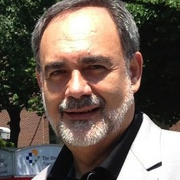 Carlos Castillo-Salgado, JD, MD, MPH, DrPH is a Professor of Epidemiology at Johns Hopkins University’s Bloomberg School of Public Health. His many accomplishments at the Pan American Health Organization include the development of one of the most important strategies for controlling malaria in the Americas, as well as the World Health Organization/Pan American Health Organization’s Regional Core Health Indicators Initiative. He has developed advanced training programs that set a gold standard for professional epidemiology worldwide and taught thousands of Latin American and Caribbean public health professionals, senior international health advisors, and academic and health leaders.
Carlos Castillo-Salgado, JD, MD, MPH, DrPH is a Professor of Epidemiology at Johns Hopkins University’s Bloomberg School of Public Health. His many accomplishments at the Pan American Health Organization include the development of one of the most important strategies for controlling malaria in the Americas, as well as the World Health Organization/Pan American Health Organization’s Regional Core Health Indicators Initiative. He has developed advanced training programs that set a gold standard for professional epidemiology worldwide and taught thousands of Latin American and Caribbean public health professionals, senior international health advisors, and academic and health leaders.
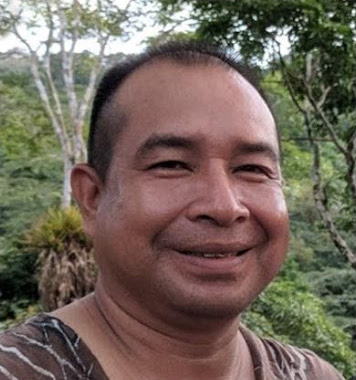 Guillermo Rodriguez Gomez is a highly skilled naturalist, fluent in four languages. He has worked with Peruvian Amazonian conversation efforts for more than 20 years as an Amazonian medicinal plant expert (shaman), medicinal plants garden curator (arborist), and herpetologist assistant (naturalist guide). He is looking to combine his knowledge of the forest and its indigenous people (his own Ocaina and Bora as well as others) with national and international efforts to conserve Peruvian natural resources and heritage.
Guillermo Rodriguez Gomez is a highly skilled naturalist, fluent in four languages. He has worked with Peruvian Amazonian conversation efforts for more than 20 years as an Amazonian medicinal plant expert (shaman), medicinal plants garden curator (arborist), and herpetologist assistant (naturalist guide). He is looking to combine his knowledge of the forest and its indigenous people (his own Ocaina and Bora as well as others) with national and international efforts to conserve Peruvian natural resources and heritage.
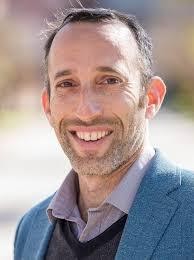 Michael Gurven, PhD is a Professor of Anthropology at the University of California, Santa Barbara, Chair of Integrative Anthropological Sciences, and an Area Director of the Biodemography section of the Broom Demography Center at UCSB. He received his PhD from the University of New Mexico in 2000. His interests include (i) explaining variation in the diversity of intragroup cooperation found in small‐scale societies, (ii) the biodemography of human lifespan, aging, and the role of social structure, and (iii) indigenous health. He has conducted fieldwork in Paraguay with Ache hunter-gatherers and in Bolivia since 1999 with Tsimane and Moseten horticulturalists. Since 2002, Gurven (along with Hillard Kaplan) has co-directed the Tsimane Health and Life History Project (THLHP) to better understand how a tropical environment and subsistence lifestyle affects various aspects of health and aging, and the effects of increasing globalization on lifestyle change and chronic disease risk. The THLHP provides primary health care to over 85 Tsimane communities and helps facilitate other health needs through collaborations with local partners.
Michael Gurven, PhD is a Professor of Anthropology at the University of California, Santa Barbara, Chair of Integrative Anthropological Sciences, and an Area Director of the Biodemography section of the Broom Demography Center at UCSB. He received his PhD from the University of New Mexico in 2000. His interests include (i) explaining variation in the diversity of intragroup cooperation found in small‐scale societies, (ii) the biodemography of human lifespan, aging, and the role of social structure, and (iii) indigenous health. He has conducted fieldwork in Paraguay with Ache hunter-gatherers and in Bolivia since 1999 with Tsimane and Moseten horticulturalists. Since 2002, Gurven (along with Hillard Kaplan) has co-directed the Tsimane Health and Life History Project (THLHP) to better understand how a tropical environment and subsistence lifestyle affects various aspects of health and aging, and the effects of increasing globalization on lifestyle change and chronic disease risk. The THLHP provides primary health care to over 85 Tsimane communities and helps facilitate other health needs through collaborations with local partners.
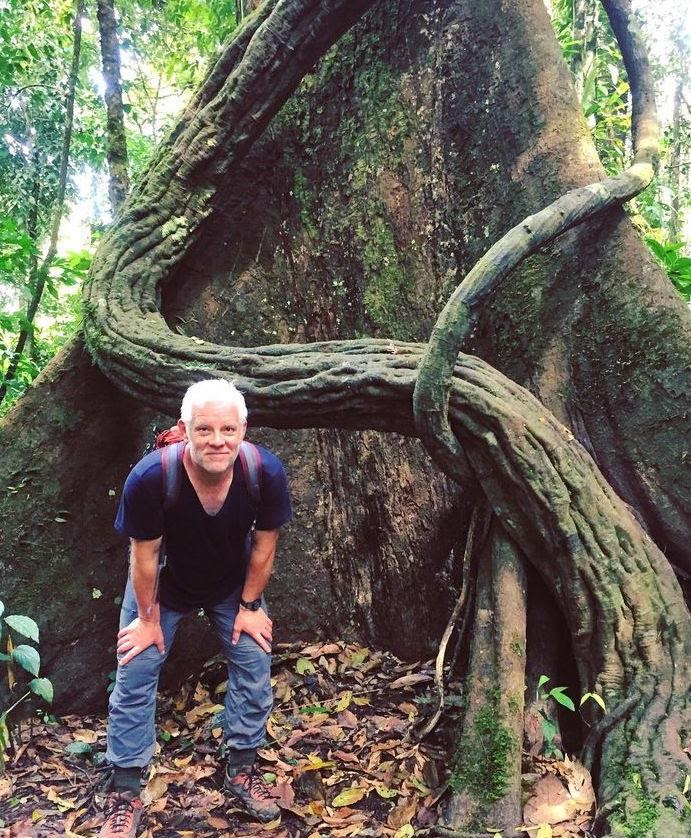 Thomas C. Hilde PhD is a research professor in the UMD School of Public Policy and Senior Fellow in the Center for International and Security Studies at Maryland (CISSM) and the Center for Global Sustainability (CGS). His work takes a systems perspective of resource frontiers and land-use change, particularly where ground-level social-ecological dynamics meet efforts to address biodiversity loss and climate change. Trained in philosophy, he teaches courses in sustainable development, environmental ethics, and policy. His graduate field course in Indonesia (Bali, Sumatra, Sulawesi, and Java) studies complex adaptive social-ecological systems, land-use change, and sustainable development. He also directs a course in the Peruvian Amazon region of Madre de Dios and Andean communities that examines the conflicts between resource extraction such as gold mining, forest conservation, and native communities, as well as economic and environmental migration. He previously taught at NYU and is a former Fulbright Scholar in Venezuela and Safra Network Fellow at Harvard.
Thomas C. Hilde PhD is a research professor in the UMD School of Public Policy and Senior Fellow in the Center for International and Security Studies at Maryland (CISSM) and the Center for Global Sustainability (CGS). His work takes a systems perspective of resource frontiers and land-use change, particularly where ground-level social-ecological dynamics meet efforts to address biodiversity loss and climate change. Trained in philosophy, he teaches courses in sustainable development, environmental ethics, and policy. His graduate field course in Indonesia (Bali, Sumatra, Sulawesi, and Java) studies complex adaptive social-ecological systems, land-use change, and sustainable development. He also directs a course in the Peruvian Amazon region of Madre de Dios and Andean communities that examines the conflicts between resource extraction such as gold mining, forest conservation, and native communities, as well as economic and environmental migration. He previously taught at NYU and is a former Fulbright Scholar in Venezuela and Safra Network Fellow at Harvard.
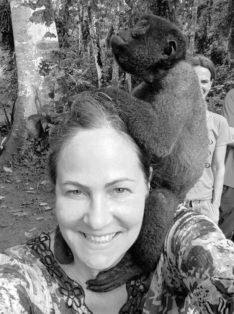 Andrea Ottesen, PhD is the Research Area Coordinator for Metagenomics at FDA’s Center for Food Safety and Applied Nutrition in the Molecular Methods and Subtyping Branch of the Division of Microbiology. She coordinates microbiome research to contribute to the One Health nexus of human, animal and environmental health. She is also Adjunct Faculty in the Department of Plant Sciences and Landscape Architecture at UMD. Dr. Ottesen worked for over 20 years with the late Dr. Jim Duke (USDA economic and ethnobotanist) studying medicinal plants and co-teaching Amazonian medicinal plant classes. Duke and Ottesen also co-authored several Latin American and South American medicinal plant compendiums. She leads a University of Maryland short-term study abroad program to the Peruvian Amazon on “Medicinal Plants of the Amazon.”
Andrea Ottesen, PhD is the Research Area Coordinator for Metagenomics at FDA’s Center for Food Safety and Applied Nutrition in the Molecular Methods and Subtyping Branch of the Division of Microbiology. She coordinates microbiome research to contribute to the One Health nexus of human, animal and environmental health. She is also Adjunct Faculty in the Department of Plant Sciences and Landscape Architecture at UMD. Dr. Ottesen worked for over 20 years with the late Dr. Jim Duke (USDA economic and ethnobotanist) studying medicinal plants and co-teaching Amazonian medicinal plant classes. Duke and Ottesen also co-authored several Latin American and South American medicinal plant compendiums. She leads a University of Maryland short-term study abroad program to the Peruvian Amazon on “Medicinal Plants of the Amazon.”
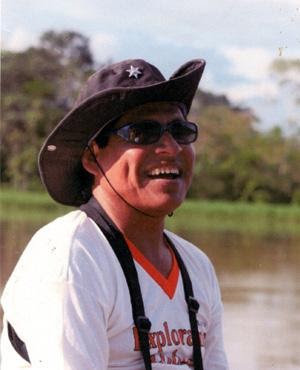 Basilio Sahuarico Huayta was born in the village of Padre Cocha on the Nanay River in Perú. He has been guiding tourists for 28 years and he's worked for Explorama for 17. Basilio speaks Spanish, English and Cocama (the language of his parents). His major areas of expertise are plants and constellations but he generally knows a little bit about everything in the rainforest. He loves his job because he loves the natural environment. He's also a great guitar player!
Basilio Sahuarico Huayta was born in the village of Padre Cocha on the Nanay River in Perú. He has been guiding tourists for 28 years and he's worked for Explorama for 17. Basilio speaks Spanish, English and Cocama (the language of his parents). His major areas of expertise are plants and constellations but he generally knows a little bit about everything in the rainforest. He loves his job because he loves the natural environment. He's also a great guitar player!
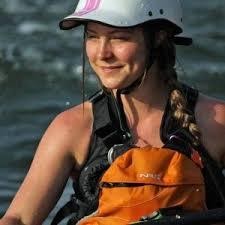 Hayley Stuart, is a Spanish teacher for the international traveling whitewater kayak high school World Class Academy, who has stepped into the roles of filmmaker, film producer, international expedition planner, and river advocate. After studying abroad in Bolivia her junior year, Hayley vowed to return to the country to, in some way, tell a piece of the rapidly regressing story of its rivers. She organized a river conservation film expedition on the Tuichi with Ruth Alipaz Cuqui, the director of the Madidi National Park, Madidi National park guards, representatives from two local mining communities along the river, an adventure ecotourism guide, the owner of Sergio Ballivian Photo Tours, and three international whitewater kayakers. The stunning resulting documentary Still River, Silent Jungle will be released in the next few months: http://www.madidifilm.com/
Hayley Stuart, is a Spanish teacher for the international traveling whitewater kayak high school World Class Academy, who has stepped into the roles of filmmaker, film producer, international expedition planner, and river advocate. After studying abroad in Bolivia her junior year, Hayley vowed to return to the country to, in some way, tell a piece of the rapidly regressing story of its rivers. She organized a river conservation film expedition on the Tuichi with Ruth Alipaz Cuqui, the director of the Madidi National Park, Madidi National park guards, representatives from two local mining communities along the river, an adventure ecotourism guide, the owner of Sergio Ballivian Photo Tours, and three international whitewater kayakers. The stunning resulting documentary Still River, Silent Jungle will be released in the next few months: http://www.madidifilm.com/
Additional Resources
- Summary of key points from the webinar
- Fundraiser to support 18 communities in Bolivian Amazon
- Spanish-language article on uncontacted peoples and fires in Amazon region (Informe REDASCA)
- Article on Iquitos medicinal plant molecular/chemical documentation
- Spanish-language resource on the pandemic in the Colombian Amazon
- Ruth Alipaz Cuqui Interview
- Erika Alandia DVM, MSc Interview
- Still River documentary trailer the Fundraiser video and Fundraiser website
- Basilio Sahuarico Huayta Interview (Start at 7:50)
UMD study abroad programs to the Amazon:
- UMD-Summer: Bolivia: Global Health Lessons in Ecotourism and Community Health (EPIB/MIEH) (Rurrenbaque) Facebook Group: Bolivia: Global Health Lessons in Ecotourism and Community Health
- UMD-Winter: Peru: Medicinal Plants of the Amazon (PLSC) (Iquitos)
- UMD-Spring Break: Peru: Sustainable Development, Environmental Policy and Human Rights (PLCY) (Puerto Maldonado)
- Learn more about environmental threats in the Bolivian Amazon: https://www.hiddencrisisbolivia.org/
- The Lancet: Voluntary collective isolation as a best response to COVID-19 for indigenous populations? A case study and protocol from the Bolivian Amazon
- United Nations Department of Economic and Social Affairs: Indigenous Peoples and the Covid-19 Pandemic: Considerations
This seminar was presented by Delight E. Satter, MPH, Senior Health Scientist in the Office of Tribal Affairs and Strategic Alliances in CDC's Center for State, Tribal, Local and Territorial Support.
See the slides for the Indigenous Perspectives on COVID-19 webinar»
See the handout for the Indigenous Perspectives on COVID-19 Webinar »
This seminar includes a presentation from Dr. E. Oscar Alleyne.
E. Oscar Alleyn, DrPH, MPH, Chief of Programs and Services, National Association of County and City Health Officials, is in charge of managing programs on infectious diseases and informatics, public health preparedness, pandemic, and catastrophic preparedness.
See the slides for the Best Practices of States and Counties in Addressing the COVID19 Pandemic webinar »
See the handout for the Best Practices of States and Counties in Addressing the COVID19 Pandemic webinar »
Learn more about Dr. E. Oscar Alleyne »
This seminar includes a presentation from Dr. Lei Zhang.
Dr. zhang is the Herbert Rabin Distinguished Professor and Director of the Maryland Transportation Institute in the Department of Civil and Environmental Engineering at the University of Maryland College Park. His current research projects, funded by NSF, USDOE, USDOT, FHWA, SHRP2, NCHRP and Maryland DOT and Maryland SHA, aim to: 1) build behaviorally sound and computationally efficient integrated travel behavior and dynamic traffic models; 2) incentivize individual behavioral changes that are also system optimal through personalized information and control signals; and 3) create a large-scale agent-based simulation of social, communications, vehicle and transportation networks.
This seminar includes a presentation from Dr. Carlos Castillo-Salgado. '
Dr. Salgado is a Professor of Epidemiology at Johns Hopkins University’s Bloomberg School of Public Health. His many accomplishments at the Pan American Health Organization include the development of one of the most important strategies for controlling malaria in the Americas, as well as the World Health Organization/Pan American Health Organization’s Regional Core Health Indicators Initiative. He has developed advanced training programs that set a gold standard for professional epidemiology worldwide and taught thousands of Latin American and Caribbean public health professionals, senior international health advisors, and academic and health leaders.
View the slides for the Impact of COVID-19 in Latin America webinar »
Third in the series was a presentation from Dr. Hongjie Liu, professor and chair of the department of epidemiology and biostatistics.
Dr. Liu’s research focuses on social and behavioral aspects of HIV/AIDS and research methodology. In the past five years, his research projects mainly covered social and risk networks for HIV infection, stigma, text messaging in intervention delivery, survey methodology and advanced analytical techniques.
Second in the epidemiology seminar series was a presentation from Dr. Travis Gayles and Dr. Chunfu Liu.
Dr. Travis Gayles is the health officer and chief of public health services for Montgomery County, Maryland. He is the former chief medical officer of the DC Department of Health’s HIV/AIDS, Hepatitis, Sexually Transmitted Diseases, and Tuberculosis Administration (HAHSTA) and Chief for the Division of STD-TB Control.
Dr. Liu is a senior epidemiologist with more than two decades of experience in public health and currently the chief epidemiologist with the Montgomery County Department of Health and Human Services. He leads a team of researchers, epidemiologists and biostatisticians to support public health functions.
First in the series was a presentation from Dr. Olivia Carter-Pokras.
Epidemiology Professor Carter-Pokras has been a health disparities researcher for three decades. She has published 74 peer-reviewed journal articles (cited over 5100 times), and her research has played a critical role in national recognition of health disparities experienced by Latinos.
Carter-Pokras lectures on infectious and chronic disease epidemiology, epidemiologic methods, cultural competency and health disparities to public health students and health professionals.
View Spanish-language resources on COVID-19 »
View the slides for the Double Jeopardy: COVID-19 in the US and Latino Communities webinar »
[/accordion]
